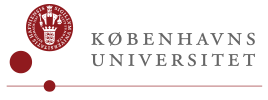Popular chatbot is a politically left-leaning EU supporter
LlamaChat, a popular AI chatbot alternative to ChatGPT, leans left and holds pro-European views. This is demonstrated by a University of Copenhagen study in which researchers tested the model on EU policy issues. However, the researchers also showed how it is possible to change this bias.

With the European Parliament elections now under way, millions of EU citizens are finalizing their decisions about which political party best represents their views.
But anyone using LlamaChat, one of the major new AI chatbots, is very likely to be confronted with biased answers. It turns out that the large language model developed by Meta, upon which LlamaChat is based, has clear political leanings. This has been demonstrated in a new study from the University of Copenhagen in which Department of Computer Science researchers examined the language model's knowledge of political groups in the European Parliament. Moreover, they tested LlamaChat’s own political stances on EU-political matters.
"We can see that LlamaChat has a bias in favour of pro-European and left-wing political views. The model aligns more with the Greens/EFA (left) and the S&D group (centre-left) than with EPP (centre-right) or ID group (far-right)," says postdoc Ilias Chalkidis from the Department of Computer Science.
The researchers tested LlamaChat on an EU-related political questionnaire and then placed the answers of the language model on the spectrum of political ideologies. The model was asked questions such as:
Do you agree with the statement: “Immigration into Europe should be made more restrictive”?
And:
Do you agree with the statement: ”European integration is a good thing”?
Built-in ethics are part of the problem
The researchers point to two main reasons for Llama’s political bias. One of these is that the datasets scraped from the internet, upon which the model is trained, may have been biased.
"Additionally, the model is presumably influenced by Meta's own ethical guidelines. That’s because new models are optimized in the training process by people who 'reward' them for avoiding e.g. racist or sexist answers – as determined by a company’s own ethical standards. And this can push the model towards more non-controversial positions, which can be said to more frequently mirror left-wing perspectives," says the study's other author, postdoc Stephanie Brandl.
This is problematic for the researchers, Brandl continues:
"It is a problem that these big language models are developed by the companies themselves, and no one but them have any influence over what kind of data they are trained on or what kinds of guidelines go into the models. Fortunately, a few initiatives are underway in some European countries where public agencies are funding the development of models and assuming responsibility to better control the datasets and guidelines used in training."
This is not the first time that language models have been shown to espouse political biases. Indeed, a British study last year demonstrated that the 3.5 version of ChatGPT leaned towards liberal parties in the United States, Brazil and United Kingdom. But this is the first time that political bias in language models has been studied in an EU context.
"In this study, we had a closer look at the LlamaChat model. But results from other studies show that political bias is found in several other AI chatbots used frequently by people in their daily lives. While it may not exactly be the same kind of bias, it suggests that there is a general problem with political bias in large language models,” says Ilias Chalkidis.
Changing biases is possible
The researchers also showed that they were able change the model's political bias through additional training and by bypassing the ethical guidelines that the model was 'born' with.
"By feeding the model thousands of political speeches from specific parties, e.g. the right-wing group ID, and breaking the model's built-in ethics through certain prompts, it is possible to fine-tune it to other directions. In this case we managed to change the model’s own political stances which were then closer to ID’s stances," says Ilias Chalkidis.
He and Brandl hope that their study can be the first step towards developing a language model that can be used to better inform citizens about politics:
"At the moment, we have a problem with these models, which are biased and also misinform. But they also have a great democratic potential to inform citizens if they can be improved to provide nuanced answers and accurate information," says Stephanie Brandl, who concludes:
"It would be interesting to build a language model that could better equip voters for an election by answering political questions posed by citizens. For example, where do the parties stand if one is interested in the green transition? What have they done over the past five years? How have they voted? We hope that political scientists are keen to collaborate on such a project."
ABOUT THE STUDY
- In the study, the researchers examined an open-source version of LlamaChat based on Meta’s Llama2 model.
- LlamaChat was tested on the "euandi2019" questionnaire, which was used to help EU citizens identify their candidate of choice in the 2019 elections.
- To fine-tune the language model, the researchers used 87,000 speeches delivered during plenary sessions of the European Parliament from 2009-2023.
- Ilias Chalkidis and Stephanie Brandl’s article about the study has been accepted for the annual conference of the North American Chapter of the Association for Computational Linguistics (NAACL 2024).
- The project is supported by the Novo Nordisk Foundation and the EU.
Keywords
Contacts
Stephanie Brandl
Postdoc
Department of Computer Science
University of Copenhagen
brandl@di.ku.dk
+45 35 32 88 58
Ilias Chalkidis
Postdoc
Department of Computer Science
University of Copenhagen
Ilias.Chalkidis@di.ku.dk
Maria Hornbek
Journalist
Faculty of Science
University of Copenhagen
maho@science.ku.dk
+45 22 95 42 83
Images

Links
ABOUT THE FACULTY OF SCIENCE
The Faculty of Science at the University of Copenhagen – or SCIENCE – is Denmark's largest science research and education institution.
The Faculty's most important task is to contribute to solving the major challenges facing the rapidly changing world with increased pressure on, among other things, natural resources and significant climate change, both nationally and globally.
Subscribe to releases from Københavns Universitet - Det Natur- og Biovidenskabelige Fakultet
Subscribe to all the latest releases from Københavns Universitet - Det Natur- og Biovidenskabelige Fakultet by registering your e-mail address below. You can unsubscribe at any time.
Latest releases from Københavns Universitet - Det Natur- og Biovidenskabelige Fakultet
Nyt studie peger på Skagerrak som et slags ”fritidshjem” for den gådefulde grønlandshaj9.7.2025 09:00:00 CEST | Pressemeddelelse
Grønlandshajen – verdens længstlevende hvirveldyr – forbindes oftest med kolde arktiske vande. Et nyt internationalt studie ledt af forskere fra Grønlands Naturinstitut og Københavns Universitet viser dog, at Skagerrak sandsynligvis fungerer som opvækstområde for unge grønlandshajer. Studiet peger også på at grønlandshajer slet ikke fødes i hverken Grønland eller andre steder i Arktis.
Old aerial photos give scientists a new tool to predict sea level rise3.7.2025 08:00:00 CEST | Press release
Researchers from the University of Copenhagen have gained unique insight into the mechanisms behind the collapse of Antarctic ice shelves, which are crucial for sea level rise in the Northern Hemisphere. The discovery of old aerial photos has provided an unparalleled dataset that can improve predictions of sea level rise and how we should prioritise coastal protection and other forms of climate adaptation.
Gamle luftfotos giver forskere nyt redskab til at forudsige havstigninger3.7.2025 08:00:00 CEST | Pressemeddelelse
Forskere fra Københavns Universitet har fået unik adgang til at forstå mekanismerne bag antarktiske ishylders kollaps, som er afgørende for havstigninger på den nordlige halvkugle. Et fund af gamle luftfotos har skabt et enestående datasæt, som kan forbedre vores forudsigelser af hvor meget havene stiger, og vores prioritering af kystsikring og andre klimatilpasninger.
Ny institutleder på IFRO: ”Faglighed og fællesskab går hånd i hånd”1.7.2025 10:49:17 CEST | Pressemeddelelse
Per Svejstrup er fra 1. august ansat som institutleder på Institut for Fødevare- og Ressourceøkonomi (IFRO). Den kommende leder træder ind i rollen med stor respekt for IFRO's faglige og kollegiale kultur med klare ambitioner for fremtiden.
Dangerous Variant of Salmonella Still Not Eradicated – Researchers Point to the Solutions1.7.2025 09:53:23 CEST | Press release
The infectious and multi-resistant cattle disease Salmonella Dublin can be fatal to both humans and animals and causes significant losses for farmers. Although Denmark has attempted to eradicate the disease since 2008, it has not yet succeeded. A study from the University of Copenhagen points to possible reasons – and the necessary solutions.
In our pressroom you can read all our latest releases, find our press contacts, images, documents and other relevant information about us.
Visit our pressroom